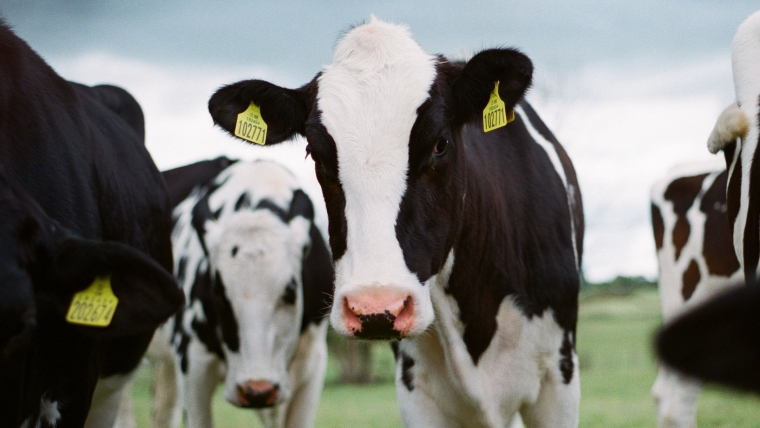
New Zealand's trade battle with Canada is making waves, with several nations joining the dispute as third parties.
That is because of concern about what precedents the ground breaking dispute might set.
The dispute began when New Zealand alleged Canada was unfairly blocking New Zealand dairy exports in breach of the Comprehensive and Progressive Trans Pacific Partnership (CPTPP).
Canada denied this, so after a lengthy standoff, New Zealand took the matter to arbitration last November under CPTPP rules.
This process is part way through, and has attracted huge interest, since it is the first case of it kind since CPTPP was set up.
As a result, several countries have joined the process as third parties, including Japan, Australia, Mexico and Chile.
The reason is that New Zealand is breaking new ground in bringing legal action under the CPTPP.
In a statement when this dispute became public, the Canadian government vowed to defend itself strongly, declaring it was not guilty of unfair trade practices.
But at the same time, it made a statement defending rules-based trade in principle, which appeared to suggest that Ottawa would abide by the outcome of the arbitration.
The core of the dispute was a charge that Canada was awarding Tariff Rate Quotas (TRQs) overwhelmingly to its own producers when they were supposed to be available to export nations like New Zealand.
As a result of this process, New Zealand said it had access to only 9% of Canada's TRQs and was faced with paying 200% to 300% tariffs on the remainder.
At the time, the Trade Minister Damien O’Connor estimated losses to New Zealand of $68 million in potential sales in the first two years of the CPTPP.
At present, the dispute hearing is half way through and should be finished by September.
The arbitration panel is chaired by Jennifer Hillman, a law professor at Georgetown University in Washington. Also on the panel is another law professor, Petros Mavroidis and a Canadian lawyer, Colleen Swords.
At this stage, both parties to the dispute have filed written claims and there will be hearings in the middle of June. The decision is expected in September.
It is not known what position the countries that have joined the case as third parties will argue. But there is a chance they might take New Zealand's side in the dispute.
That is because Canada's TRQs are "plurilateral", meaning they apply to a wide range of exporters. So, if New Zealand is being blocked from selling dairy goods to Canada, then other countries could risk having to undergo the same treatment.
The main New Zealand protagonist apart from the Government is the Dairy Companies Association of New Zealand (DCANZ).
Its executive director Kimberly Crewther says she is not surprised or upset in any way by the fact that other countries are piling into the dispute.
"That is not an unfamiliar process, it happens in the WTO, where other nations can put in their views.
"There will be a number of countries that have their views on the principle that quota access providers should be able to be fully utilised, which is what we are arguing."
A powerful lobby group, Dairy Farmers of Canada, has been a beneficiary of the block on New Zealand sales.
It earlier defended the issuance of TRQs to domestic suppliers in reference to an earlier trade agreement, the Canada-United States Mexico Agreement (CUSMA), which replaced the old NAFTA.
“By allocating CUSMA TRQs to processors and distributors, Canada is meeting its trade obligations,” the organisation wrote.
“Our industry worked closely with the Government ….. and this approach has shown itself to be one worth replicating, be it on CUSMA or any other trade related matter.”
One reason for the intensity of this dispute is that the Canadian dairy sector is highly regulated by a state commission, which can set prices and production levels.
6 Comments
Yes, very interesting.
Always thought it was a pity that the original members allowed it to be hijacked and admitted highly protectionist countries like Canada, Japan, and the US.
https://en.wikipedia.org/wiki/Trans-Pacific_Strategic_Economic_Partners…
The whole point of CPTPP is to bring in protectionist countries, and use the agreement to increase trade access. A big well done to Damien OConner - the best minister in this admittedly sorry lot- to take this on.
Bring them in and show them the error of their ways?? yeah right.
It appears to me Canada has two different trade agreements that conflict with one another and Canada has chosen the one that gives its dairy farmers the best benefit. Possibly something in the small print that says if Canada has a conflict between two trade agreements, then they can choose the one most beneficial to them.
By signing to CPTPP, the Canadian government finally shafted their powerful dairy farmer lobby, and this is that playing out.

We welcome your comments below. If you are not already registered, please register to comment
Remember we welcome robust, respectful and insightful debate. We don't welcome abusive or defamatory comments and will de-register those repeatedly making such comments. Our current comment policy is here.